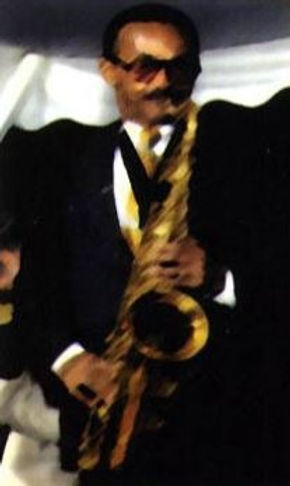
"He believed that
soulful jazz
that
grooved hard
could have
just as much
popular appeal as
R&B."
By Mike LeDonne
I’m not really sure how Percy France and I got to be friends but it was probably from going to the West End and hearing him play. I loved everything about his playing right off the bat. I also had the Jimmy Smith recording Home Cookin’ that featured Percy.
I used to take Percy down to The Cornerstone (Meteuchen, NJ) to play Quartet gigs. We did quite a few of them together. The gig was in a neighborhood bar/restaurant that had a booker who was also a bass player and who took a liking to playing with me. This gave me a chance to bring people like Percy, Harold Vick, Eddie Locke, Jimmy Knepper and other masters that weren’t as busy as they should have been down there to play.
The rides back and forth to The Cornerstone were always fun because Percy and I had a chance to hang and he would always lay some wisdom on me. I was much younger than him but there was no generation gap at all. He always talked to me as one of his friends and colleagues which shows what a humble guy he was. At the same time, he knew he had the advantage of having been around the block a few times and was very open about sharing his experiences with me.
One of his things was to call the kind of Jazz he liked to play “Rhythm & Jazz” as opposed to Rhythm & Blues. He believed that soulful jazz that grooved hard could have just as much popular appeal as R&B. Percy was part Bop tenor player and part Red Prysock. Hearing Percy's tone all by itself was incredible. His sound and phrasing were really right up there with the very top-level tenor players of all time. He also had a very hip harmonic sense that he didn't get to indulge on the more R&B style recordings he made.
On one of those trips to The Cornerstone I told Percy about my history of playing organ as a kid and then losing interest and selling my B3 while in college. I also told him about a recent experience sitting in on Jack McDuff’s gig at Dude’s in Harlem and about Brother Jack being so encouraging about my playing that I went out and bought another B3. I told him I wanted to get back to playing it again and he told me about a club in Harlem called Showmans where he played a steady Wednesday night gig. He asked me if I wanted to do it with him and that started a 2-year stint with Percy and drummer Joe Dukes that I’ll never forget.
I learned many lessons there as I got my organ chops back together but one in specific always stands out. We were in the middle of a tune and Percy, who had always been super supportive to me, turned around and looked at me, threw his hands up in the air and said where’s the groove? I was shocked but I knew what he meant because I could tell something didn’t feel right and I knew it wasn’t Joe Dukes’ fault. Then I realized I had the volume pedal all the way up and the organ was really distorting so I backed the volume down and the groove suddenly settled back in. Percy turned back around with a big smile and said YEAH, THERE IT IS! What a simple but important lesson not only about the organ but about swing in general. I always tell my students today you can’t force a groove. When in doubt back off a little and allow the groove to happen and don’t beat it into the ground.
I kind of lost touch with Percy after that but will always have nothing but love for him. He was so kind hearted and soulful and one of the greatest tenor players I ever heard.
If I mentioned his name to Clifford Jordan, who I used to play with in Art Farmer’s Quintet, his eyes would light up and he’d say “Percy France, I know about him, he’s one of those tenor players that doesn’t need a mic!” Few people know how much Clifford loved tenor players like that.
Organist/pianist Mike LeDonne has recorded as a leader over 20 times.
Photo adopted from I Should Care cover.